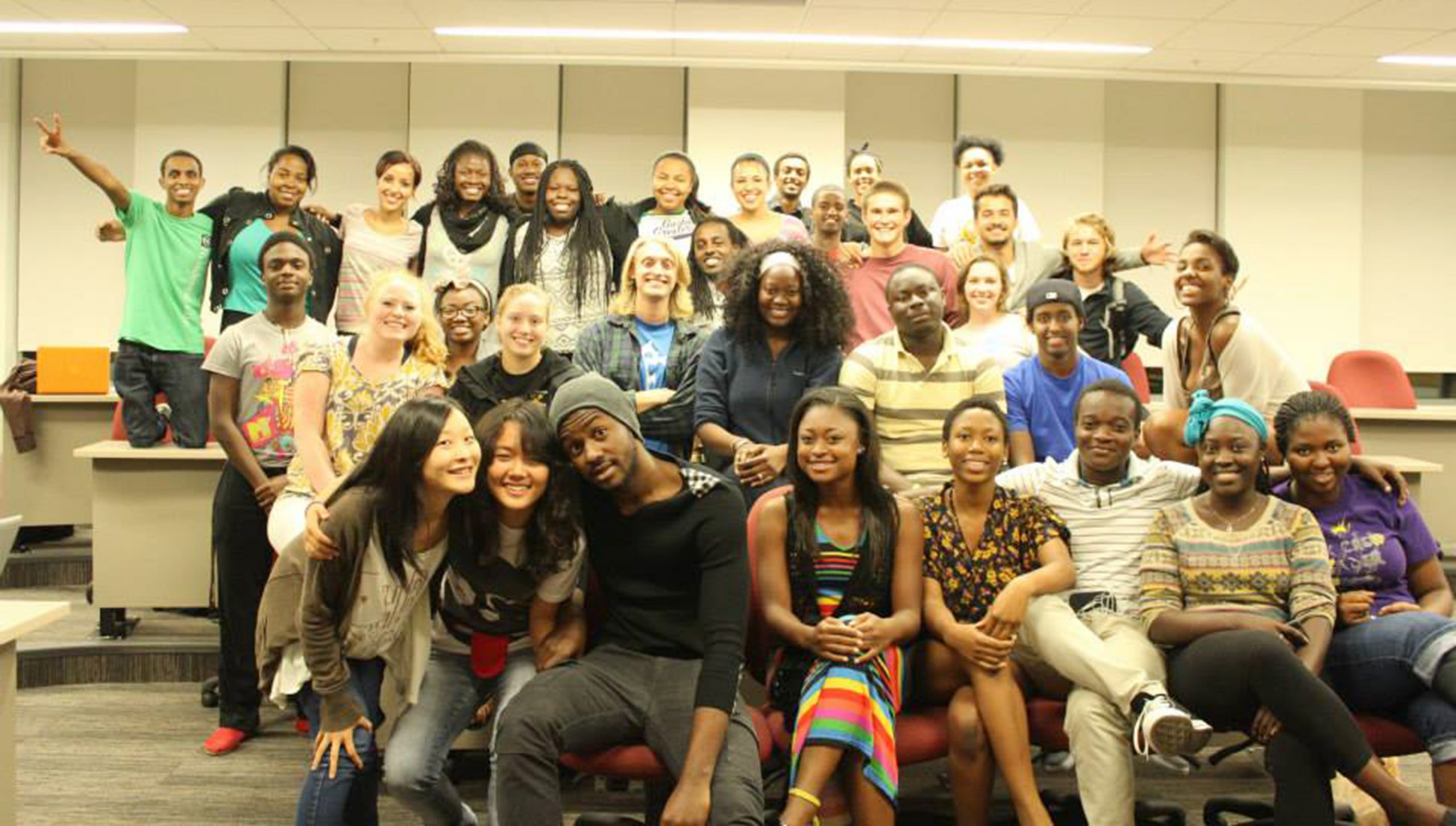In light of recent crimes of hate and bias on campus, the Pan African Student Organization (PASO) and social justice theater troupe, I Am We Are (IAWA), will provide a workshop where students and faculty are invited to interact on issues of understanding privilege and its impact on individuals and relationships.
The theme PASO is focusing on this year is, “Unity through Diversity,” and as they sponsor events that revolve around that theme, the campus-wide reaction to the hate crime was something that they wanted to address as a group. Junior PASO Co-President Abdi Umur discussed the intention further.
“From what I understood from the forum [on the recent hate crime on campus] is that people were looking for further discussion on this, not specifically on the hate crime, but about hate in general, and the administration hasn’t provided us with that opportunity and conversation in a constructive way,” Umur said.
PASO then decided to approach IAWA to hold a workshop for students and faculty to attend. IAWA will be hosting a workshop event facilitated by PASO entitled, “Your Path to Privilege,” in the Heritage Room on Nov. 20 at 7 p.m.
“It’s important to know that the focus of the event is not racial privilege, but also privileges in gender, sexual orientation, socioeconomic, and more. Everyone has privilege, and I hope that everyone will leave with more awareness of themselves, of their relationships, and how to address privilege in society,” Senior PASO member Amy Milberger said.
Sophomore IAWA member Lily Whitney-Eliason describes IAWA as a group that focuses on social issues and making sure that voices from every part of campus are listened to and understood.
“I think the entire campus felt more of a need to discuss hate crimes in a more productive way. Hate crimes and racial slurs happen more on this campus than we realize, and just because there aren’t emails about it, doesn’t mean that it’s not important to discuss. We need to be able to talk about race in a way that allows us to make meaningful differences on campus,” Whitney-Eliason said.
The workshop will create an interactive safe-zone for students and faculty to freely communicate.
“I personally felt that after the hate crime, everyone was so focused on what happened and not why it happened. We want to build a level of trust so that everybody can discuss it,” Whitney-Eliason said.
The workshops will begin with theater game warm-ups and transition into different movement activities that will help to portray different emotions and situations.
“We call it ‘practicing for the revolution.’ It’s so, when you go out and [encounter real-world] situations, that you can say, ‘hey, I did the workshop. I know how to act and what to say in this situation.’ People can feel more comfortable in situations. I hope that students and faculty learn that it is a lot easier to talk about these topics than people thought and that their interactions can make a difference,” Whitney-Eliason said.
Umur encourages both faculty and students to attend the event.
“Even though this is a serious topic, one of the things that IAWA does really well is making people feel comfortable at their workshops. They get you going and make it easier for people of all background to come and discuss,” Umur said.
Milberger also hopes that people of all backgrounds of understanding privilege will feel welcome.
“People who have gone to conferences on privilege will be able to learn more at the workshops, and people who have had no experience discussing privilege will be able to learn something. Everyone has the opportunity to voice their thoughts. You will meet people who will bring a lot of aspects to the workshops that you would have never had the chance to talk with,” Milberger said.
PASO and IAWA hope the workshop will help people understand how privilege affects people and relationships, and provide methods on understanding and reacting to situations of hate.
“Our wish is that when people leave the event, that they will not only want to continue conversations about privilege, but that they will be able to start conversations about it without feeling scared or that they are being attacked,” Milberger said.

Rock on, good people.